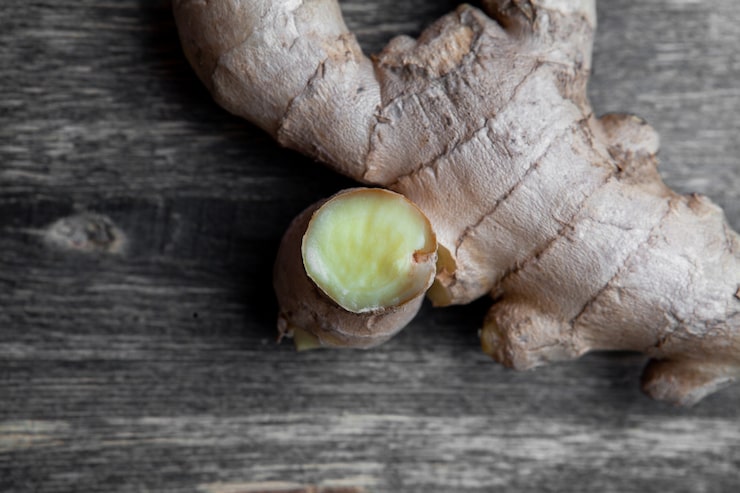Ginger tea is one of those drinks people either love or doubt. Some say it helps digestion and inflammation, but what about your kidneys? Is it helpful, or could it be harmful?
Is ginger tea good for your kidneys?
For most people, ginger tea is safe for the kidneys and may even help. Ginger contains anti-inflammatory and antioxidant compounds that can support kidney health. Some studies using concentrated ginger extract show reduced oxidative stress, improved kidney function in diabetes, and protection from toxin-related damage. Those studies used extracts rather than tea, so the effects with tea are milder because the active compounds are less concentrated. If you have advanced kidney disease, take certain medicines, or need to limit specific foods, check with your doctor before making ginger tea a daily habit.

Does ginger tea contain the same compounds as ginger extract?
Most research uses ginger extract, which is more concentrated than tea. Extracts isolate the active compounds from the root, while tea is made by steeping fresh or dried ginger in hot water. Tea still contains important compounds, though at lower levels:
– Gingerol – an antioxidant and anti-inflammatory compound.
– Shogaol – forms when ginger is dried or heated and has anti-inflammatory effects.
– Zingerone – another antioxidant that may reduce oxidative stress.
Drinking ginger tea regularly may offer mild benefits because it still delivers some of these compounds.
Benefits of ginger tea for kidney health
Ginger has long been used in traditional medicine, and modern research is beginning to back up many of its uses—especially for kidneys. Most studies use ginger extract, but since tea contains similar active compounds, it might still help in smaller ways.
1. May reduce kidney inflammation and oxidative stress
Kidneys filter waste and toxins, which over time can cause oxidative stress and inflammation. Ginger contains antioxidants and anti-inflammatory compounds that may help protect against this damage. In animal studies, ginger extract reduced inflammation and oxidative damage, raised levels of protective antioxidants like glutathione, and lowered markers of cell damage. While extracts are stronger, ginger tea may still provide some antioxidant protection over time.
2. May protect kidneys from toxins
Kidneys filter harmful substances, but exposure to toxins—such as alcohol, some medications, and environmental pollutants—can strain them. Studies suggest ginger may protect against toxin-related kidney damage. For example, in ethanol-related kidney injury, ginger reduced harmful waste buildup (like urea, creatinine, and uric acid) and improved antioxidant activity. If your kidneys are exposed to toxins, drinking ginger tea might offer some protection. (If you want a quick check of how your kidneys are doing, an at-home test from Happy Pharmacy can give you a snapshot.)
3. May support kidney health in diabetes
Diabetes is a major cause of kidney disease, and high blood sugar can damage kidneys over time. Some studies suggest ginger helps regulate blood sugar and protect kidney function. A review of animal research found ginger supplementation lowered markers of kidney damage in diabetic rats and reduced oxidative stress and inflammation. If you have diabetes or prediabetes, ginger tea might help support kidney health by aiding blood sugar control and lowering inflammation, though its effects are likely milder than those seen with extracts.
4. May help prevent kidney stones
Kidney stones form when minerals like calcium and oxalate build up and crystallize. Ginger won’t dissolve existing stones, but it may help prevent them by:
– Acting as a mild diuretic, which can increase urine output and reduce mineral concentration.
– Reducing inflammation, which can ease irritation from stones.
– Possibly helping regulate calcium and oxalate levels.
So while ginger tea won’t remove stones, it may help reduce the chance they form by keeping the kidneys flushed and lowering inflammation.
5. May support kidney function in chronic kidney disease (CKD)
CKD is a long-term decline in kidney function. Ginger isn’t a cure, but some studies suggest it could slow damage and improve certain markers. Reviews of research on ginger extract show links to lower creatinine and urea levels, better antioxidant activity, and reduced inflammation. For people with CKD, ginger tea might offer some support, but always check with your doctor first—especially if you’re on medication.
When might ginger tea be a problem for kidneys?
For most people, ginger tea is safe and possibly beneficial. But there are situations where it may not be a good choice.
1. Kidney transplant patients should be cautious
If you’ve had a kidney transplant, ginger tea may be unsafe. Ginger can interact with immunosuppressant drugs used to prevent rejection and may affect how these medicines are metabolized. Ginger also has mild blood-thinning effects, which can raise bleeding risk—especially after surgery. If you’re a transplant patient, avoid ginger tea unless your doctor says it’s okay.
2. Can ginger tea worsen kidney disease?
Ginger tea is generally not harmful for most people with CKD and may help. Still, watch for:
– Medication interactions: Ginger can interact with blood pressure drugs, blood thinners, and diabetes medications—many of which CKD patients take.
– Dietary limits: Some people with advanced CKD need to limit potassium or oxalates, though ginger is usually low in both.
If you have kidney disease, ginger tea is likely safe in moderation, but check with your doctor if you’re on medications or have special dietary limits.
3. Can too much ginger be harmful to kidneys?
While ginger tea is usually safe, too much could cause issues:
– It can lower blood pressure, which may be a problem if you’re on meds to control blood pressure.
– It increases bleeding risk, especially if you take blood thinners.
Stick to moderate amounts—about 1 to 2 cups per day is generally considered safe.
Final thoughts: should you avoid ginger tea?
For most people, ginger tea is not harmful to the kidneys and can even be helpful. People with a kidney transplant, advanced kidney disease, or those taking multiple medications should talk to their doctor before drinking it regularly.